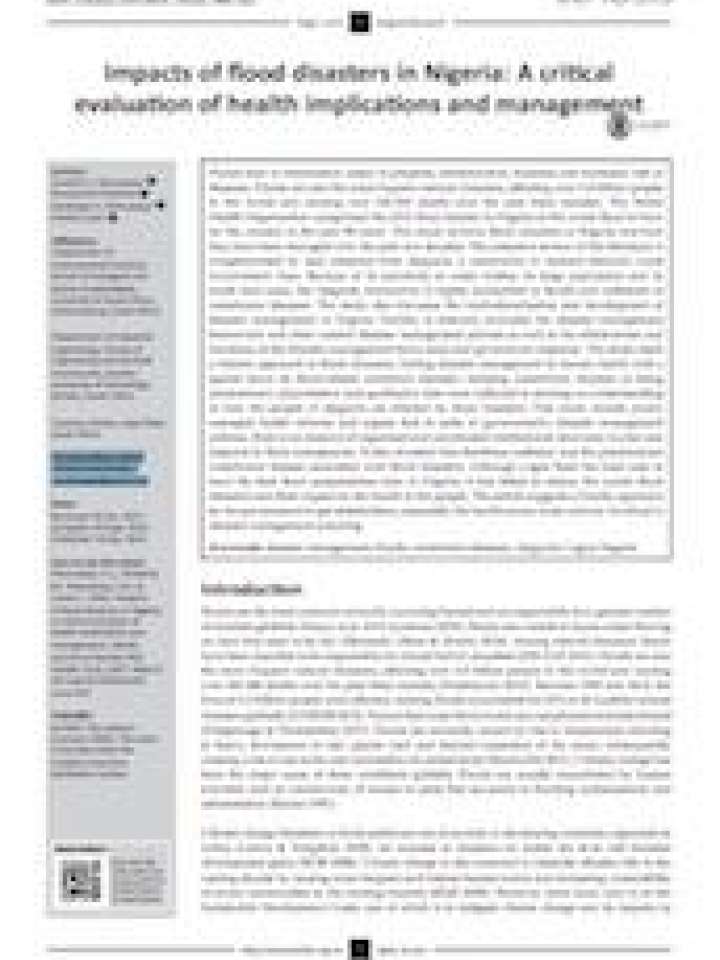Impacts of flood disasters in Nigeria: A critical evaluation of health implications and management
This study reviews flood disasters in Nigeria and how the government has managed them over the past two decades. The extensive review of the literature is complemented by data obtained from Ajegunle, a community in Ajeromi–Ifelodun Local Government Area. Because of its proximity to water bodies, its large population and its small land mass, the Ajegunle community is highly susceptible to floods and outbreaks of waterborne diseases. The study also discusses the institutionalisation and development of disaster management in Nigeria.
Further, the authors critically evaluate Nigeria's disaster risk management framework and policies, as well as the effectiveness and functions of the risk management focus areas and government response. The study takes a historic approach to flood disasters, linking risk management to human health with a special focus on flood-related infectious diseases, isolating waterborne diseases as being predominant.
Nigeria suffers from poorly managed health reforms and despite the government’s policies, there is an absence of organised and coordinated institutional structures to plan and respond to flood emergencies. Diarrhoea outbreak is the predominant waterborne disease associated with flood disasters. Although Lagos State has been said to have the best flood preparedness plan in Nigeria, it has failed to reduce yearly flood disasters and their impact on people's health. The article recommends a holistic approach by the government to get stakeholders, especially the health sector, more actively involved in disaster management planning.
Explore further
